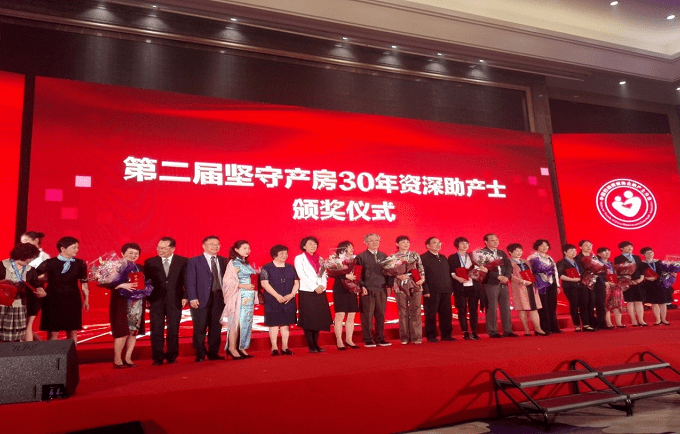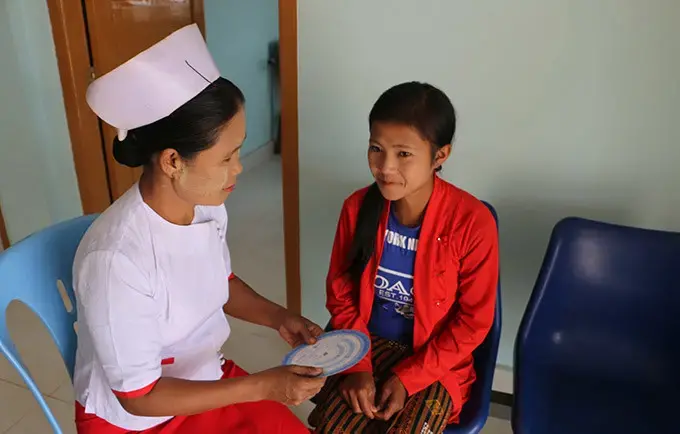BEIJING, China - On 27-28 April 2018, more than 1,500 midwives, partners and supporters of midwives all over China gathered in Tai’an city of Shandong province to celebrate the International Day of the Midwife, at the 4th Midwifery Annual Conference and 2018 International Forum on China Midwifery Professional Development. The Conference has been organized by the Midwives’ Branch of China Maternal and Child Health Association (CMCHA) annually since 2015.
As the most important platform for information sharing and knowledge exchange on midwifery in China, the conference covered many priority issues related to midwifery development, including national midwifery policy, midwifery and innovations, midwifery technical guidance interpretation, midwifery appropriate technologies, midwifery education and research, perinatal service, midwifery health education, postpartum rehabilitation and obstetric emergency and technologies.
During the conference, around 1,000 midwives with 30 years’ working experience in delivery room were awarded a prize for their long-term contributions to sexual, reproductive, maternal and newborn health.
Suren Navchaa, Deputy Representative of UNFPA in China was invited to attend the conference and delivered the opening remarks. “Over 340,000 women and over 3 million infants around the world die each year from preventable complications from pregnancy and childbirth. The majority of these deaths would be prevented if there are enough qualified and adequately resourced midwives available around the world,” said Navchaa, “midwives are skilled to provide up to 87% of childbirth-related services. Midwives serve as one of the foundations for achieving the United Nations Sustainable Development Goal 3, aiming to bring maternal mortality down to less than 70 deaths per 100,000 live births, end preventable child mortality, and ensure universal access to sexual and reproductive health services by 2030.”
Since 2011, UNFPA has been working with CMCHA to strengthen enabling policy environment for midwifery development in China. Some breakthroughs have been made as a result of this fruitful partnership such as the approval of establishment of midwifery undergraduate degree programme in China by Ministry of Education in 2017, the enrolment of nine standardized midwives training bases and setting up the China Midwives Branch of the CMCHA in 2015, among others.
In China, midwives are not regarded as a health profession although government has been aware of the importance of midwifery in ensuring maternal health, especially in promoting normal delivery and reducing unintended pregnancies. UNFPA is continuing to facilitate policy dialogue towards the full establishment of midwifery as a profession in primary health care system in China, including the possible amendment of national related regulations and policies to incorporate midwifery. This will engender more investments in quality education and training of midwives, promote high standards for midwifery service delivery, and ultimately result in the best quality of care to expectant mothers and newborns in China.





